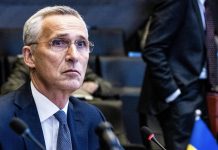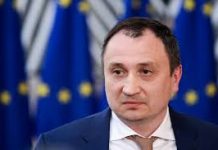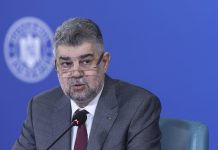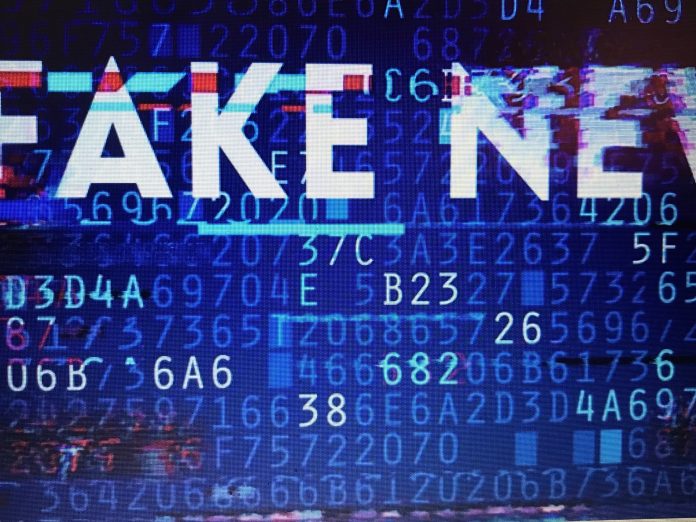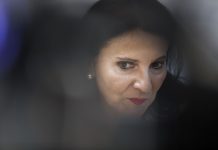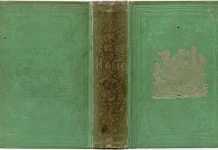The war in Ukraine has brought a fresh barrage of disinformation from Russia and its supporters about the situation.
Disinformation
It can be confusing to people digesting the news to figure out what is accurate information, what is fair comment, and what is disinformation. Disinformation isn’t simply misinformation: it’s a weapon of war used to divide, confuse and stir hatred.
Universul.net provides you with the current ‘fake news’ agenda on Russia’s invasion of Ukraine in the hope that it will help people distinguish fact from fiction.
The list is compiled from snapshots of WhatsApp group messages, social media posts and points of view you hear repeated on the television and radio. Sometimes, they just don’t sound „right” but you don’t know why.
Propaganda
The disinformation isn’t simple. It’s a hotchpotch of historical half-truths, false narratives, propaganda_ and appeals to Romanians’ worries about daily life.
This list was compiled by Mihaela Carstei, the Co-host at F-World: The Fragility Podcast and verified by Universul.net.
The story starts with claims that infrastructure in Donetsk and Luhansk (the pro-Russian separatist republics recognized by Russia last week) had been systematically destroyed by Kyiv and 1.1 million pensioners haven’t received their pensions for eight years. This is where the claims of genocide fits in.
Thinking: unpaid pensions and soaring energy bills resonate with Romanians.
Putin
Next, we learn Putin only wanted fair treatment of Russians in east Ukraine. It then claims that Putin pleaded with French President Emmanuel Macron to tell Ukraine to live up to the Minsk agreement but the Kyiv government refused to respect the accords, even using heavy weaponry on civilians with tacit Western approval.
Now the story says, Russia ran out of options: it evacuated women and children, and recognized Donetsk and Luhansk. „Ukraine can be considered the aggressor.” With the Minsk accord ripped up, Putin was free to act “with a clean conscience.”
So far, this narrative of #disinformation builds the case for why Russia’s Putin is the good guy, Russia is the victim, and #Ukraine is the aggressor. Now is the moment to appeal to Romanians with some historical grievances, real and imagined.
Historical spin
Now for some historical spin (the more respectable cousin of fake news). Romania should remember Ukraine is not a friend even if old border disputes have been settled peacefully, if not happily.
Some of the borders date back to the times of 15th century King Stephen the Great when what is modern-day Romania bordered Poland and Russia.
The story next doubles down on more falsehoods. It claims Ukraine is not a country officially recognized by the United Nations and Ukraine was created by Lenin in 1917 to steal territories from Poles, Slovaks, Hungarians, and Romanians.
Ukrainian identity
The spin goes on: as proof that Ukrainian identify is fake, it mentions Petru Movila/Petro Mohyla, 17th century bishop of Kiev, born in Moldova. It omits to say that in the 1600s, Romania was three distinct principalities, like many other European countries.
Now the story reverts to an anti-Western position. If the Ukrainian “ghost state” does not recognize minorities (such as Romania’s own minority) then NATO the European Union should stop recognizing Kosovo, the “cradle of Serbian orthodoxy” taken by force from then Yugoslavia.
The story goes on to say that NATO bombed Belgrade to stop massacre in Kosovo, and if anyone complains about the Russian invasion of Ukraine, it is sheer hypocrisy.
Democracy=bad
The final blame lies with the United States which dropped the Atom bomb, has been “at war for 180 years,” and has destroyed a number of countries „in the name of democracy.” Another one thrown in for good measure: ‘democracy =bad.’
The narrative ends with a conspiracy that journalists who deviate from the narrative are politically directed journalists, aren’t they?
Fake ‘Peace’ PR
Finally, the current pro-Putin PR is that Russia simply wants peace. Athletes such as tennis star Maria Sharapova stayed silent for four days only to come out ans say she had „a deep longing for peace ” on Tuesday. Kristina Rihanoff, a Russian dancer and celebrity in the UK known for her pro-Russian and rabidly anti-Ukrainian views has now changed her tune after a backlash in Britain. „I’m not supporting Putin. I hate… war and invasion….as much as any human can.”
Moldova, Romania ban ‘Kremlin media machine’ Russia Today and Sputnik ahead of EU announcement


